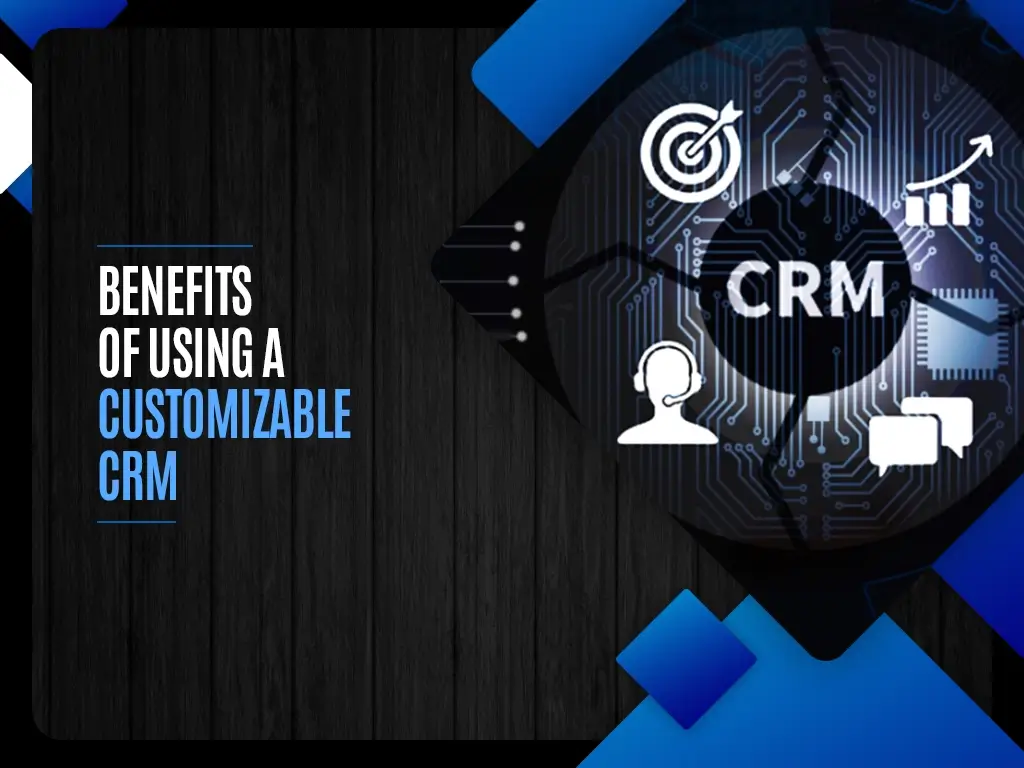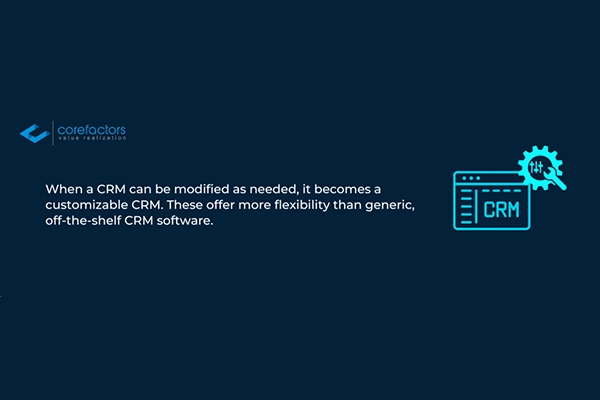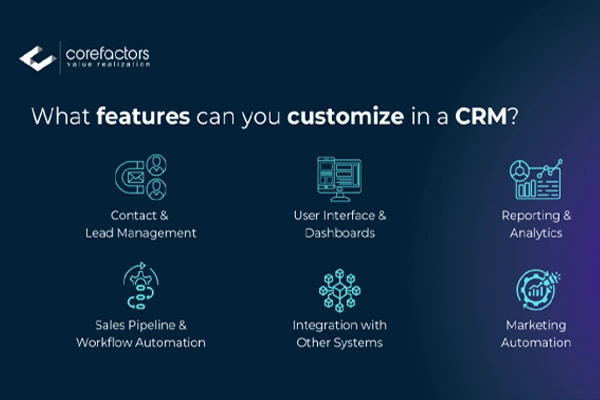Benefits of Using a Customizable CRM
Discover the benefits of using a customizable CRM to streamline your business operations, enhance customer relationships, and drive growth efficiently.

No two businesses operate the same, then why should they use the same customer relationship management (CRM) tool?
Instead of purchasing off-the-shelf generic CRMs by paying a hefty price, the market now provides businesses an option to use customizable CRMs.
This blog sheds light on what exactly is a customizable CRM, the features that can be customized, and how such a sales CRM benefits businesses.
What is a Customizable CRM?
Customer Relationship Management (CRM) system helps businesses handle customer interactions and foster healthy relationships with customers and potential clients. However, not all businesses are the same—they differ in modules, customer bases, and needs. Business processes vary across industries, and even businesses within the same industry often operate differently.
Since CRM systems are integral to business operations, they should also be flexible to change with changing business needs. When a CRM can be modified as needed, it becomes a customizable CRM. These offer more flexibility than generic, off-the-shelf CRM software that is rigid and cannot be molded to fit the business use case.
Customizable CRMs, unlike their one-size-fits-all counterpart, can be modified and expanded to align with business workflows, processes, and team requirements.
So, what exactly can be customized in a customizable CRM?
What Features Can You Customize in a CRM?
Let’s look at the features that can be modified in a customizable CRM.
-
Contact and Lead Management
Businesses can customize lead fields depending on their requirement. For example, a fintech company might have fields like loan applicant name, loan type, interest rate, etc. whereas a real estate business will have fields like lead name, family income, property area, etc.
Customizable CRMs offer flexibility by enabling users to change field names, add new fields, rearrange the way they appear, and more.
-
User Interface and Dashboards
In a customizable CRM, businesses can modify the layout and design of the CRM interface to align with the company’s branding and user preferences, making it more intuitive and user-friendly.
They can customize dashboards to display key metrics and data relevant to specific roles within the organization. This ensures that sales reps, customer service agents, and managers see the information most pertinent to their tasks.
- Sales Pipeline and Workflow Automation
Businesses can design multiple sales pipelines to reflect different sales processes for various products or services. Each stage in the pipeline can be customized to match the unique steps of the business’s sales cycle.
They can use the customizable CRM to set up automated workflows to streamline repetitive tasks, such as sending follow-up emails, assigning leads to sales reps, or updating records based on specific triggers.
- Marketing Automation
Customizable CRMs can segment customer data and drive targeted marketing campaigns. In this way, businesses can tailor marketing campaigns to address their target audience with personalized messages. They can customize email templates, landing pages, and social media posts.
Lead scoring allows businesses to prioritize leads based on criteria such as engagement levels and impressions on marketing activities.
- Reporting and Analytics
Businesses can generate custom reports and analytics that focus on their specific KPIs and metrics. These reports can be on sales performance, marketing campaign reports, customer satisfaction, etc.
Customizable CRMs allow users to add and configure dashboards that display real-time data and insights relevant to the business. For example, the number of calls made to a loan defaulter is an important dataset for a loan recovery company, whereas the number of business leads handled by each team member is an important metric for a sales lead of a B2B company.
- Integration with Other Systems
Customizable CRMs come with wide integration capabilities. Businesses can integrate other software and platforms in their tech stack into the CRM system to ensure a seamless flow of data and a more robust tech ecosystem.
A real-estate business might integrate marketplace listings, a fintech service provider might integrate their core banking solution with the CRM, and a recruiting company can use integration and APIs to allow the influx of applicant data from job portals to their CRM.
What are the Benefits of Using a Customizable CRM?
- Meet Business Needs: A customizable CRM can be adapted to meet the unique requirements of various industries, such as healthcare, real estate, finance, and retail. This ensures the CRM aligns perfectly with industry-specific workflows and regulations.
- Save Money: Customizable CRM software often comes as a pay-what-you-need model. This allows businesses to choose and pay for only the features they need, avoiding unnecessary costs associated with one-size-fits-all solutions.
- Scalability and Flexibility: A customizable CRM software is better adapted to the changes that occur when a business grows. Businesses can add or remove features and functionalities as needed, without significant disruptions.
- Better Data Management and Insights: Tailored reports and analytics provide insights specific to the business’s needs. This helps in informed decision-making and strategy formulation.
- Increased Productivity: Manual efforts are reduced due to customized workflows and automation of routine tasks. Integration with other platforms streamlines operations and ensures no time is wasted on data inconsistency across platforms.
- Improved Customer Relationships: Businesses can offer personalized experiences by capturing and utilizing detailed customer information. Customizable communication templates and automated follow-ups ensure timely and relevant interactions with customers.
Key Takeaway
Businesses across industries can change the game by implementing customizable CRM software. The customizations allow the CRM to provide tailored solutions that align perfectly with specific needs and workflows, ensuring maximum efficiency and relevance.
Why settle for off-the-shelf products when you can personalize the CRM to suit your business requirements?
Author Bio
Darshayita Thakur works as a Content Specialist at Corefactors. She has over 2 years of experience ideating, curating, and writing content in the B2B space. Her interests include visualization of ideas and simplifying complex content for better understanding. She is passionate about reading books from every corner of the world and petting stray cats.





